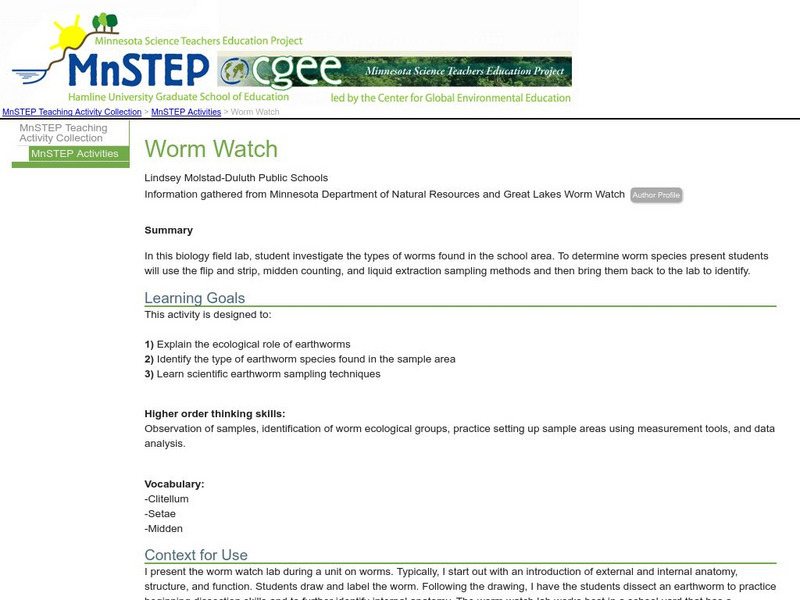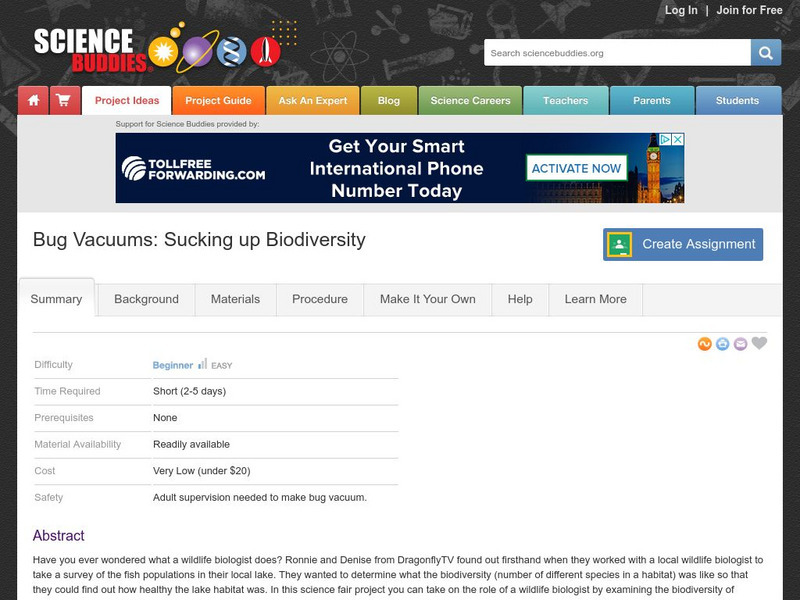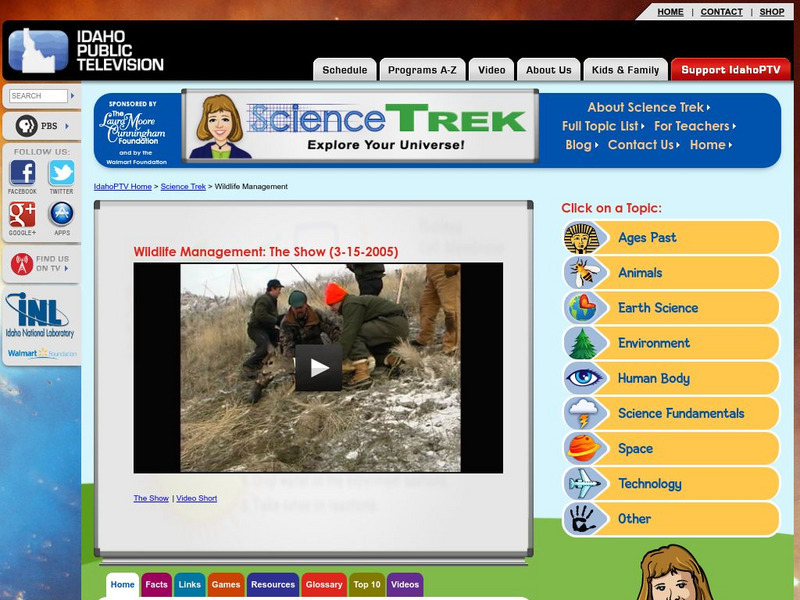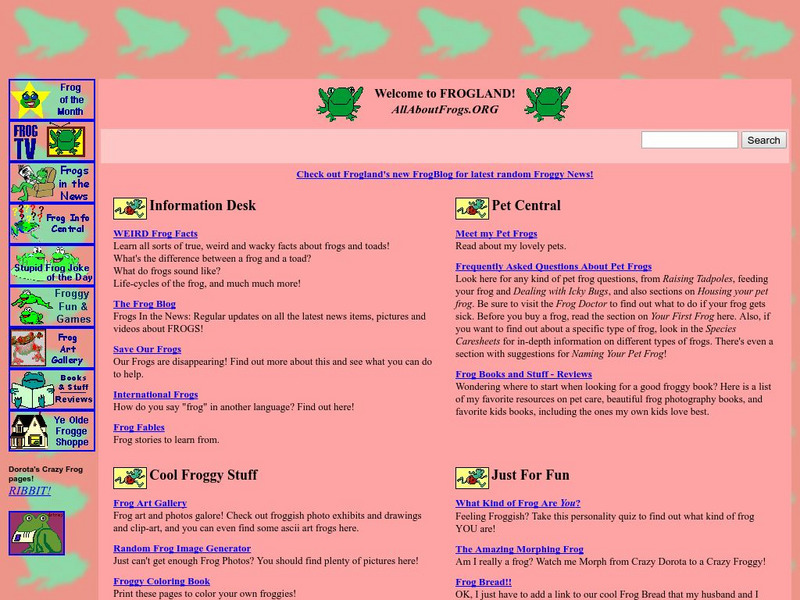Sea World Parks & Entertainment
Sea World: Biodiversity
Depicts biodiversity with a brief narrative. Includes vocabulary, bibliography, and one activity. Subject matter at an upper intermediate grade level or higher.
Other
National Science Digital Library: Smile: Habitat Overcrowding
Experiment with crowd control in a garden. Students will test what happens to radish plants observing who survives, who gets the most food, water and sunlight.
Columbia University
Nasa: Sedac: China's Agenda 21
[Free Registration/Login Required] A comprehensive reform program proposed for the Chinese economy, environment, agriculture, transportation, etc. The full text for all 69 programmes are linked to this page.
American Geosciences Institute
American Geosciences Institute: Earth Science Week: Mapping a Refuge
An observation-based investigation for students while visiting a national wildlife refuge.
PBS
Pbs Learning Media: Untamed: The Wildlife Center of Virginia
In this learning module with the video series UNTAMED: The Wildlife Center of Virginia, students will learn from Ed Clark, the staff of the Wildlife Center of Virginia, and special guests discuss the issues facing wildlife and what...
Sophia Learning
Sophia: Carrying Capacity: Lesson 2
This lesson will introduce the carrying capacity and show how it affects a population. It is 2 of 4 in the series titled "Carrying Capacity."
Sophia Learning
Sophia: Carrying Capacity: Lesson 3
This lesson will introduce the carrying capacity and show how it affects a population. It is 3 of 4 in the series titled "Carrying Capacity."
Sea World Parks & Entertainment
Animal Bytes: African Cape Buffalo
Provides users with a concise list of information helpful to anyone wanting to know more about these South African ungulates. Contains scientific classification of these animals, fast facts, fun facts as well as additional information on...
Other
Natural Perspective: Joint Legs (Arthropoda)
A brief description of arthropoda and their population on the earth today. Som pictures of examples of the different classes of arthropods. (Includes insects, arachnids, crustacians, and malacostraca.)
Sophia Learning
Sophia: Human Activity
A webpage discussing how human activity has impacted soil, populations, water composition, and temperature. Website includes an audio tour of the material. [1:53]
PBS
Pbs Learning Media: Finch Beak Data Sheet [Pdf]
This graphic from Ecology and Evolution of Darwin's Finches by Peter Grant presents data from the Galapagos Islands, showing that a severe drought put selective pressure on the population of Darwin's finches and resulted in a change in...
Other
Few: Human Impact on the Environment & Environmental Impact on Humans
Human beings have an enormous impact on the natural environment, and ultimately on each other. The way we chose to house, clothe, shelter, and meet the needs for vital resources such as food, energy, and water, not only affect the...
Science Education Resource Center at Carleton College
Serc: Mn Step: Worm Watch
For this field investigation, students use sampling techniques to identify the types of earthworms found in the schoolyard. Data will be combined for the whole class to get a snapshot of the earthworm population, species, and ecological...
Science Buddies
Science Buddies: Bug Vacuums: Sucking Up Biodiversity
In this science fair project you can take on the role of a wildlife biologist by examining the biodiversity of insects in your own backyard. To do this, you will follow the directions to create a homemade bug vacuum.
PBS
Idaho Ptv: Dialogue for Kids: Wildlife Management
A collection of facts and links for learning about wildlife management. The facts cover what wildlife management is, the job of a wildlife manager, biodiversity, predators and prey, land capacity, habitat, and endangered animals. Other...
Science Struck
Science Struck: Different Branches of Geography
Learn about the many specializations in the field of geography within its two branches of physical and human geography.
World Wildlife Fund for Nature
World Wildlife Fund Russia
This resource provides bilingual news and facts about wildlife issues and projects across Russia. A small collection of beautiful images and video clips. Special section for kids with puzzles and nature-related games such as Rescue the...
PBS
Nh Pbs: Nature Works: Estuaries
Learn more about estuaries when you visit this informative site. This resource provides locations of and weblinks to estuaries in the United States.
Other
Welcome to Frogland!
Frogland has fun and important information about frogs in the news, pet frogs, frogs in the wild, frog jokes, and more. Features include a section for teachers and parents.
Curated OER
Unesco: Cameroon: Sangha Trinational
Situated in the north-western Congo Basin, where Cameroon, Central African Republic and Congo meet, the site encompasses three contiguous national parks totalling around 750,000 ha. Much of the site is unaffected by human activity and...
Curated OER
Unesco: Kenya: Kenya Lake System in the Great Rift Valley
The Kenya Lake System in the Great Rift Valley , a natural property of outstanding beauty, comprises three inter-linked relatively shallow lakes (Lake Bogoria, Lake Nakuru and Lake Elementaita) in the Rift Valley Province of Kenya and...
Curated OER
Ny Times Learning Network: Wild Wildlife
In this lesson, students investigate the moral, economic and ecological impacts of the extinction of various animal species. Students first assess how and why people support and refute actions that lead to the extinction of animals. They...
Other popular searches
- Human Population Ecology
- Population Ecology Lab
- Community Ecology Population
- Biology Population Ecology
- Plant Population Ecology
- Population Ecology Plants
- Population Ecology Webquest
- Population Ecology Bacteria
- Population Ecology Web Quest
- Uk Population Ecology
- Population Ecology Graphing
- Census Population Ecology



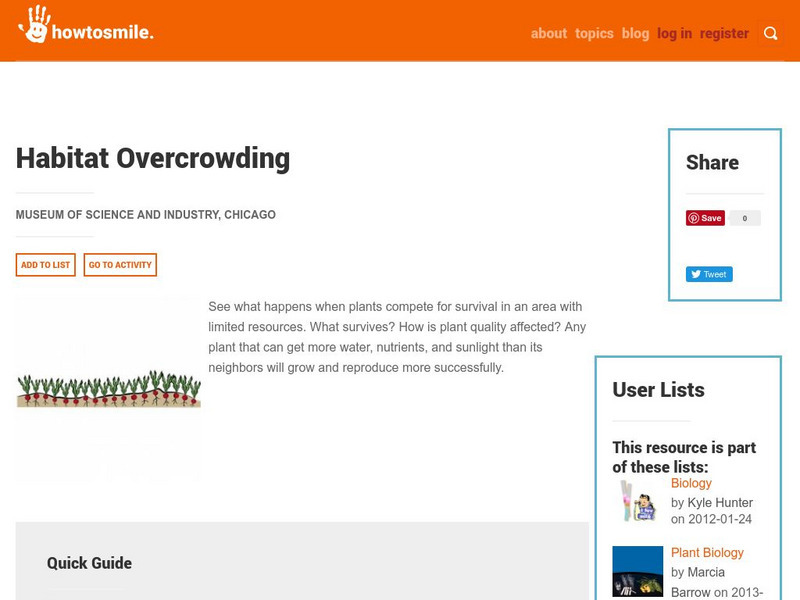
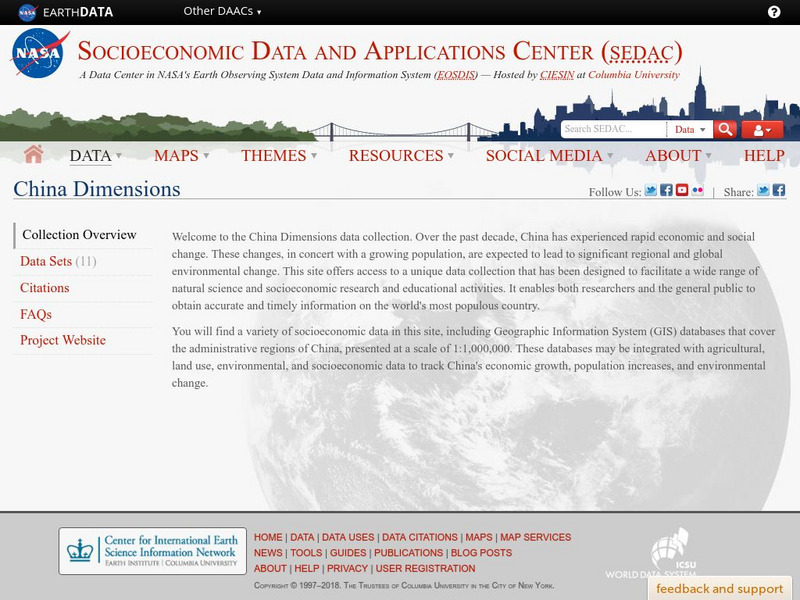






![Pbs Learning Media: Finch Beak Data Sheet [Pdf] Website Pbs Learning Media: Finch Beak Data Sheet [Pdf] Website](https://content.lessonplanet.com/knovation/original/38853-54307de55e3ff0df41d67fbc6e061b4b.jpg?1661365772)

